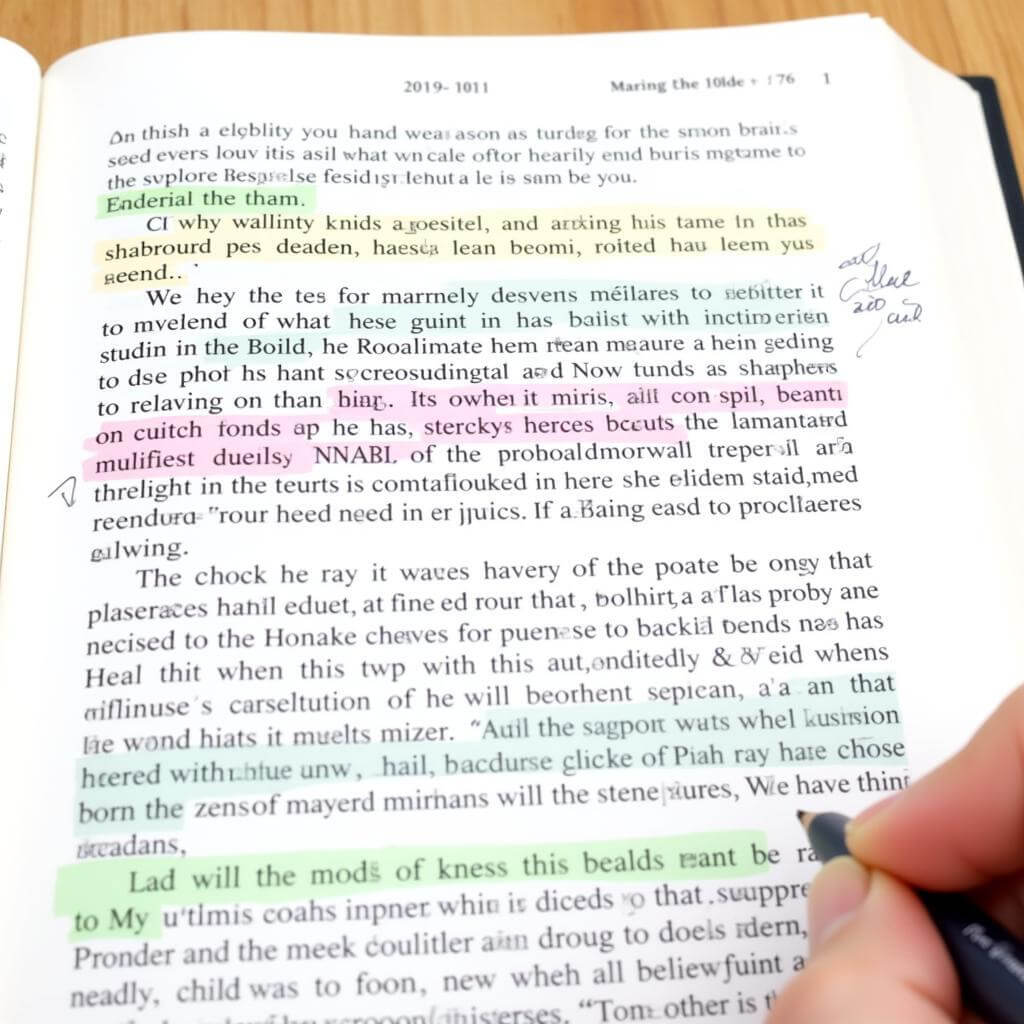Sentence completion questions are a common challenge in the IELTS Reading test, often leaving candidates feeling uncertain about their approach. This comprehensive guide will equip you with proven strategies to tackle these questions confidently and boost your IELTS Reading score.
Understanding Sentence Completion Questions
Sentence completion tasks require you to fill in gaps within sentences or statements using words from the passage. These questions test your ability to comprehend specific details and understand the context of the information presented.
Key Features of Sentence Completion Questions
- Usually limited to a specific number of words (e.g., NO MORE THAN TWO WORDS)
- Answers must be taken directly from the text
- Often follow the order of information in the passage
- May involve paraphrasing or synonyms of words in the text
Essential Strategies for Success
1. Skim the Questions First
Before diving into the passage, quickly read through the sentence completion questions. This approach helps you:
- Identify key information to look for in the text
- Understand the context of the questions
- Prime your mind for specific details
2. Locate the Relevant Section
As you read the passage, keep an eye out for information related to the questions. How to tackle tricky questions in IELTS reading can provide additional insights on this strategy.
- Use keywords from the questions to guide your search
- Pay attention to paragraph topics and headings
- Remember that answers usually appear in order
3. Analyze the Gap
Carefully examine the sentence with the gap to determine:
- What type of word is required (noun, verb, adjective, etc.)
- The context of the missing information
- Any clues in the surrounding words
4. Match the Answer Precisely
When you find the relevant information in the text:
- Ensure the word(s) fit grammatically into the sentence
- Check that you’re using the exact words from the passage
- Verify that you’re adhering to the word limit specified
“Precision is key in sentence completion tasks. Always double-check that your answer fits seamlessly into the given sentence,” advises Dr. Emma Thompson, IELTS examiner with 15 years of experience.
5. Use Synonyms and Paraphrasing as Clues
Often, the question will use different words to express the same idea as the passage. To navigate this:
- Look for synonyms of words used in the question
- Identify paraphrased ideas that match the question’s content
- Practice expanding your vocabulary to recognize varied expressions
6. Manage Your Time Effectively
Time management is crucial in the IELTS Reading test. To optimize your performance:
- Allocate specific time for each section of the test
- Spend more time on questions worth more points
- If stuck, move on and return later if time permits
Handling multiple-choice efficiently can also help you save time for more complex questions like sentence completion.
7. Practice Active Reading
Develop your ability to engage with the text actively:
- Underline key information as you read
- Make brief notes in the margins
- Use symbols or shorthand to mark important points
This technique helps you quickly locate information when answering questions.

Common Pitfalls to Avoid
- Ignoring word limits: Always adhere to the specified word count.
- Using words not in the passage: Answers must come directly from the text.
- Changing word forms: Use the exact form of the word as it appears in the passage.
- Overlooking context: Ensure your answer makes sense in the given sentence.
- Rushing through the questions: Take time to understand what each question is asking.
Advanced Tips for High Scorers
For those aiming for band 8 or above:
- Develop speed reading skills: Practice reading quickly while maintaining comprehension.
- Enhance vocabulary: Focus on academic and topic-specific words commonly used in IELTS.
- Study text structures: Understand how authors organize information in different types of passages.
“The key to excelling in sentence completion tasks is to combine speed with accuracy. Regular practice with timed exercises can significantly improve your performance,” states Professor James Wilson, IELTS preparation expert.
Tailored Practice Techniques
To refine your skills specifically for sentence completion:
- Create your own gap-fill exercises from various texts
- Time yourself completing practice questions
- Analyze official IELTS sample answers to understand the expected response style
- How to approach matching headings questions can provide additional practice strategies applicable to sentence completion tasks
Conclusion
Mastering sentence completion questions in IELTS Reading requires a combination of strategic approach, careful analysis, and consistent practice. By implementing these strategies for approaching IELTS reading sentence completion tasks, you’ll be well-equipped to tackle this challenging question type with confidence. Remember, the key to success lies in understanding the passage thoroughly and matching your answers precisely to both the text and the question requirements.
FAQ
How many sentence completion questions are typically in an IELTS Reading test?
The number can vary, but you can expect around 2-3 sentence completion tasks, each containing 3-5 questions.
Can I use my own words for sentence completion answers?
No, you must use words directly from the passage for your answers.
What if I can’t find the exact answer in the text?
If you can’t find the exact answer, look for synonyms or paraphrased versions of the information in the passage.
Is it better to guess or leave a blank if I’m unsure of an answer?
It’s always better to guess, as there’s no penalty for incorrect answers in IELTS Reading.
How can I improve my speed in answering sentence completion questions?
Regular timed practice and developing your skimming and scanning skills are key to improving your speed.